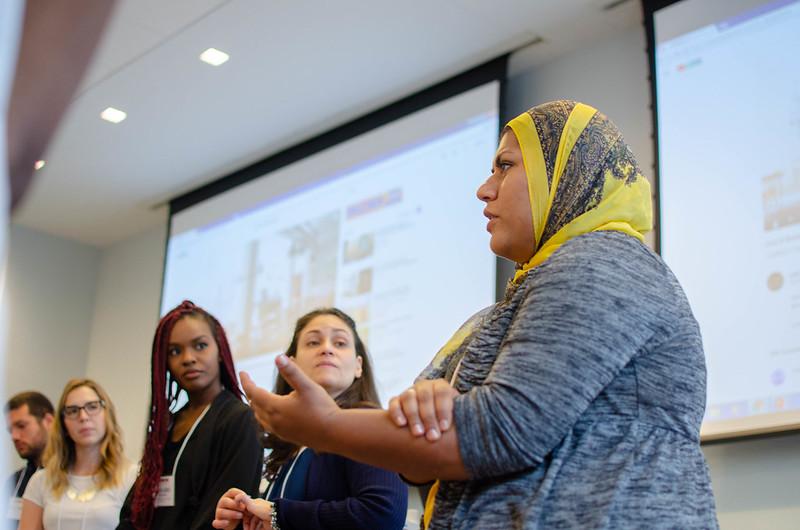
A research team including University of Maryland School of Public Health researchers found that people who go through a "Culturally Aware Mentoring" (CAM) program have lasting awareness of cultural differences and an increased ability to use inclusive practices.
Professors Stephen Thomas (in the Department of Health Policy and Management) and Sandra Quinn (Department of Family Science) and colleagues with the National Research Mentoring Network created a novel eight-hour intervention targeted to faculty and administrators in STEM fields. Divided into three sections, the intervention first focused on intrapersonal awareness, and participants completed exercises that reflect on their own racial and ethnic identities.
Next, the intervention worked to create interpersonal awareness, allowing participants to deepen their understanding of terms like bias and stereotypes, and explore how cultural identities can affect interactions between mentors and mentees.
Finally, the third section focused on skill building, by using case studies and role playing exercises to introduce racial/ethnic issues in a mentoring context. Participants were able to practice critical thinking and communication skills as they relate to mentoring.
“Existing faculty and administrators need a road map to navigate the social and cultural dynamics that come with a more demographically diverse student body,” Thomas, Quinn and their colleagues wrote. “We believe that role playing and case study activities give the participants an opportunity to discuss, practice, and observe culturally aware behavior, consequently building their self-efficacy to perform these actions with mentees or colleagues in real time.”
Researchers found that the intervention had a lasting impact on participants. A year and a half to two years after the intervention, participants reported that the intervention influenced their awareness of cultural differences as well as their assumptions about and approaches toward interactions with colleagues and students. They also said the interventions influenced their efforts to change their behaviors to promote inclusive practices.
“A lot of our students are first generation, they may have different economic backgrounds, they may have different family circumstances,” one participant remarked. “The training, I think, helped us understand. We need to listen a little bit more to hear other people’s experiences, to help formulate, you know, what the next steps are when we’re working with students.”
Next, researchers say they hope to investigate the effectiveness of CAM training in graduate research training contexts.
The study, Culturally Aware Mentorship: Lasting Impacts of a Novel Intervention on Academic Administrators and Faculty, was published in the journal, PLOS One.
Related Links: